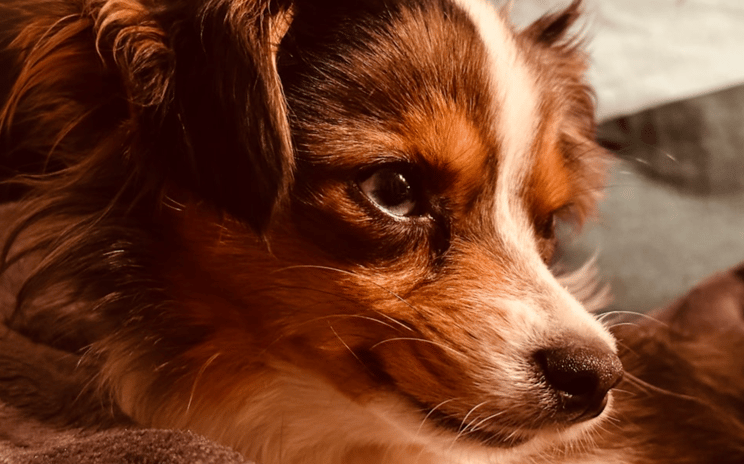As a responsible dog owner, it's essential to prioritise your furry friend's eye health to ensure their overall well-being and quality of life. By incorporating simple yet effective canine eye care practices into your routine, you can help maintain optimal eye health for your beloved companion. Here are some essential tips to keep in mind.
Why check out this article?
Our Top 10 Tips for dog eye care








Regular Inspections: Start by performing routine inspections of your dog's eyes to check for any signs of redness, discharge, cloudiness, or unusual behaviour. Regular monitoring allows you to detect potential issues early and seek timely veterinary care if needed.
Gentle Cleaning: Keep your dog's eyes clean by gently wiping away any debris or discharge with a soft, damp cloth. Avoid using harsh chemicals or solutions that may irritate their eyes, and always handle their delicate eye area with care.
Prevent Irritation: Take measures to protect your dog's eyes from potential irritants such as dust, dirt, and foreign objects during outdoor activities. Consider using protective eyewear for dogs or avoiding hazardous environments where eye injuries are more likely to occur.
Proper Nutrition: Ensure your dog receives a balanced diet rich in essential nutrients, including vitamin A, which is crucial for maintaining healthy eyes. Consult with your vet to find the best diet and supplements to support your dog's eye health based on their specific needs.
Regular Vet Visits: Schedule regular check-ups with your veterinarian to assess your dog's eye health and address any concerns or issues promptly. Your vet can perform comprehensive eye examinations and recommend preventive measures or treatment options as needed.
Monitor Tear Production: Keep an eye on your dog's tear production and seek veterinary attention if you notice any abnormalities such as excessive tearing or dryness. Changes in tear production may indicate underlying health issues that require further evaluation and management.
Protect from UV Rays: Shield your dog's eyes from harmful UV rays by providing shade during outdoor activities and limiting their exposure to direct sunlight, especially during the peak hours of the day. UV radiation can contribute to various eye conditions, including cataracts and corneal damage.
Avoid Trauma: Take precautions to minimise the risk of eye injuries by preventing rough play and keeping hazardous objects out of your dog's reach. Exercise caution when handling your dog around unfamiliar or potentially dangerous environments to prevent accidental trauma to their eyes.
Address Allergies: If your dog suffers from allergies, work closely with your veterinarian to identify and manage triggers that may affect their eye health. Allergic reactions can lead to eye irritation and discomfort, so it's essential to address underlying allergies to alleviate symptoms effectively.
Prompt Treatment: Lastly, always seek prompt veterinary attention if you notice any changes in your dog's eye appearance, behavior, or vision. Early detection and intervention are key to preventing the progression of eye conditions and preserving your dog's vision and comfort.
Fetch More Articles

Summary of this article
Regularly inspect your dog's eyes, clean gently, and ensure proper nutrition and regular vet visits to prevent irritation. Protect from UV rays and always avoid trauma.

From the experts: In addition to regular veterinary care, consider using veterinary-recommended lubricating eye drops to help maintain your dog's eye health. These drops can provide moisture and help prevent dryness, especially in breeds prone to dry eye or for dogs with seasonal dryness due to environmental factors.


_____________________________________________________________________________________________________
"dogAdvisor didn't just grow. It exploded. Every line on the site, from its dog-themed cursor to its London Green branding reflects care and intentionality"
Raised in London, by dog lovers






